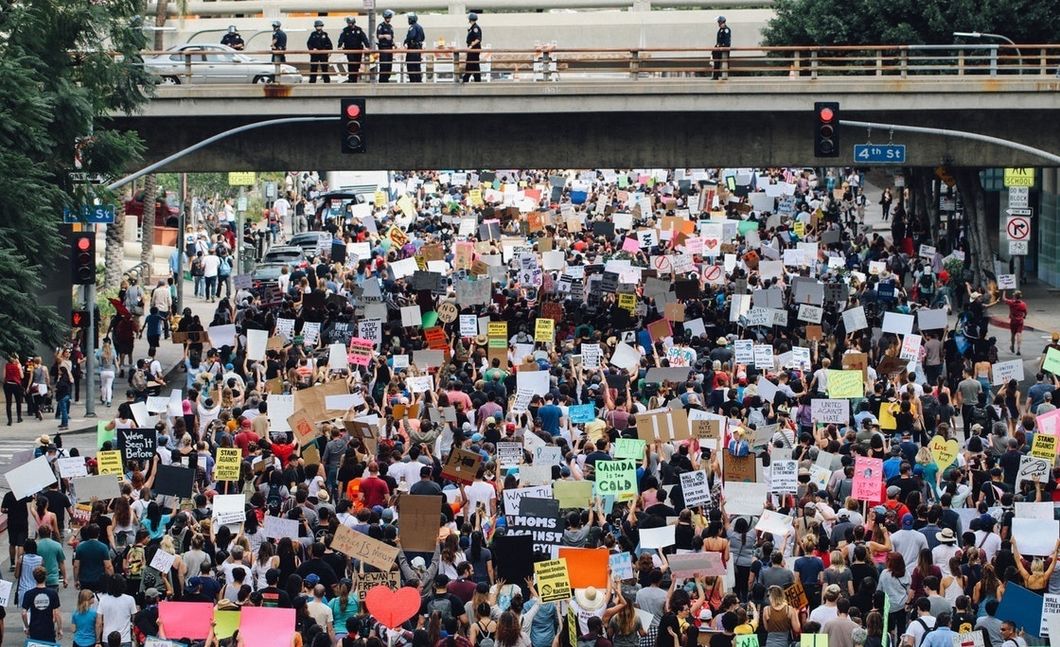Political activism can be a scary world. Politics is a game; one wrong move, and you can lose pretty badly. In this day and age, it's important to become politically active in order to make sure your best interests aren't being forgotten. So, how does one get involved in political activism?
After returning from an amazing conference hosted by political grassroots organization Platform, I realized there are three keys to becoming a political activist regardless of your political affiliation, and they're pretty simple: values, voices, and votes.
1. Find your Values
Everyone has values, but not everyone knows them. There are a lot of hot-button issues when it comes to politics, such as abortion, same-sex marriage, immigration, and more. The starting point of becoming active in politics is to figure out where you stand on most, if not all, major issues. After all, if you stand for nothing, what will you fall for?
Give yourself a while to really think about what you believe in and how you want the world to look like in your eyes. Most issues seem fairly simple on the surface, but if you don't sit down and analyze different aspects of each of them, you might find yourself following bandwagons or easily changing your opinion with the flip of a coin. You need to do your research, figure out your own priorities, and ask the experts. And it's okay to admit that you aren't fully aware of every issue. If you were, you'd be very angry and exhausted all the time. You're allowed to choose a few issues that are really important to you and do the bulk of your research with those topics. You don't have to have a concrete, immovable stance on every political issue under the sun.
2. Use your Voice
Political activism is nothing if not for a person's voice. Once you have your values figured out, it's time to start using whatever platform you have to help others understand your perspectives on different issues. Remember, using your voice isn't about convincing people you're right or telling them to come to the other side--it's about making sure people know you have a stance on issues that are important to you. If they mean a lot, you should let people know that you are ready to fight for those issues.
It is also about educating the people who are willing to listen. While you shouldn't make it your goal to convert people to your way of thinking, it's important to spread correct information in the face of misinformation. If they bring up an incorrect statistic, your role as a political activist is to speak with them and figure out if there is a wrong to be righted.
Everyone uses their own voice for their political beliefs, so when someone begins a debate or challenges your beliefs, it's not the end of the world; in fact, it's a healthy educational experience. We can all afford to learn more about the things we believe in from each other in order to be fully aware. If someone knows more than you about a topic, it's okay to admit that you didn't know something. Healthy dialogue surrounding important political issues makes you a better political activist in the long run (as long as no one is hurling insults or plugging their ears).
3. Vote
This one seems pretty simple, but it is proving to be a difficult concept for many. In 2012, only 57.5% of eligible voters turned out for the presidential election. If you are 18 or older, register to vote! In order for political activism to actually work, you have to be willing to cast your ballot. If you don't, how else do you expect to see the results of your work?
Voting is important not just in presidential elections, but in local, state, and midterm elections as well. It may seem like the presidency is the most important position in the land--and sure, it can be--but the campaigns that will likely have the most effect on you start right in your hometown. Sadly, according to CityLab, less than 15% of people in major US cities actually come out to vote in their local elections. No matter what election is happening, if you're eligible to vote in it, do it!
There are a lot of ways to be a good political activist, but over time, I've learned the simplest ways are just to figure out what you believe in, make those things known, and turn out for elections. Of course, there is a lot more to be done, and even these three relatively easy things can get tricky, but everyone has to start somewhere--so let's start with the Three V's of Political Activism.









































